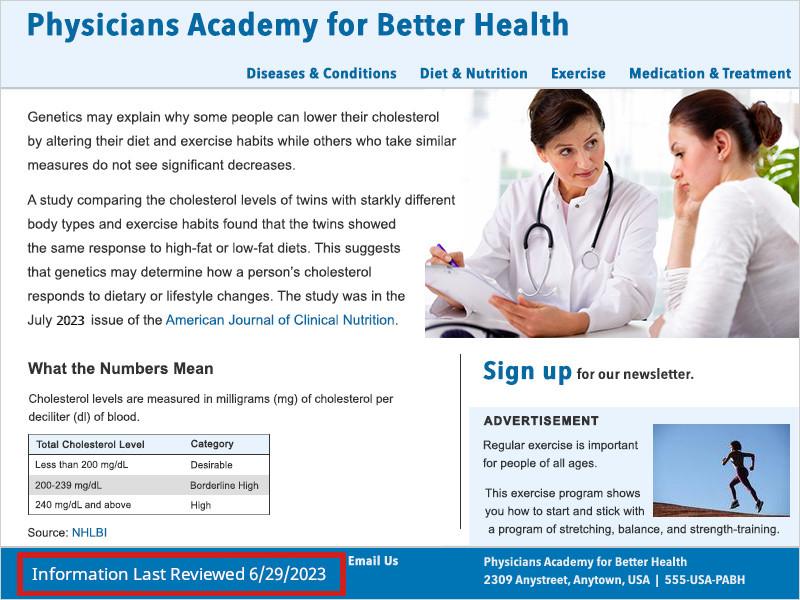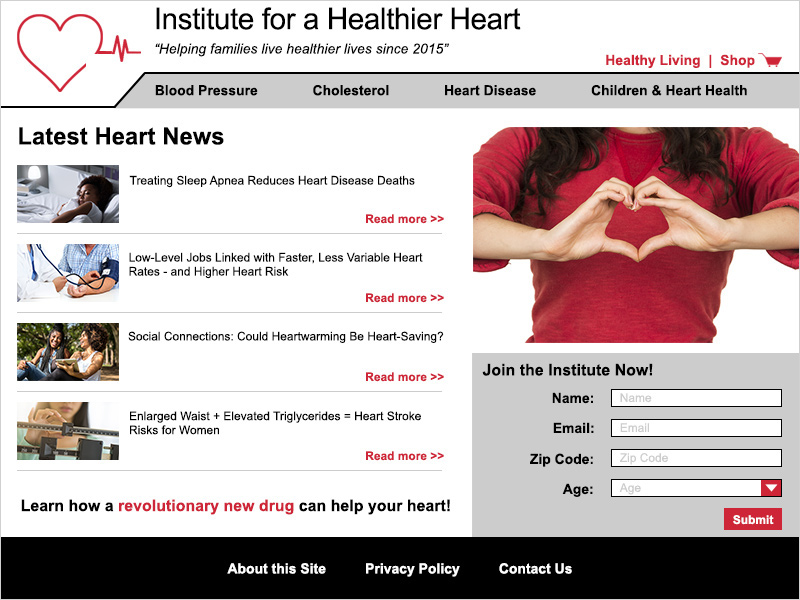Evaluating Internet Health Information Tutorial
Here are a few more tips for evaluating the quality of health information:
- Look at the general tone of the information. Is it too emotional? Does it sound too good to be true? Be cautious about sites that make unbelievable claims or promote "miracle cures." That could be misinformation. Neither example site presents information this way.
- Check to see if the information is current. Out-of-date information can be hazardous to your health and is one form of misinformation It may not reflect the latest research or treatments. Look for signs that the site is reviewed and updated regularly.
On the Physicians Academy site, the bottom of the page shows when the information was last reviewed to make sure it's still accurate.

There are no dates on the Institute's pages. You do not know if the information is current, and there is no way to tell when the content was last updated.

Next, we'll see what you need to know about privacy on health information sites.




